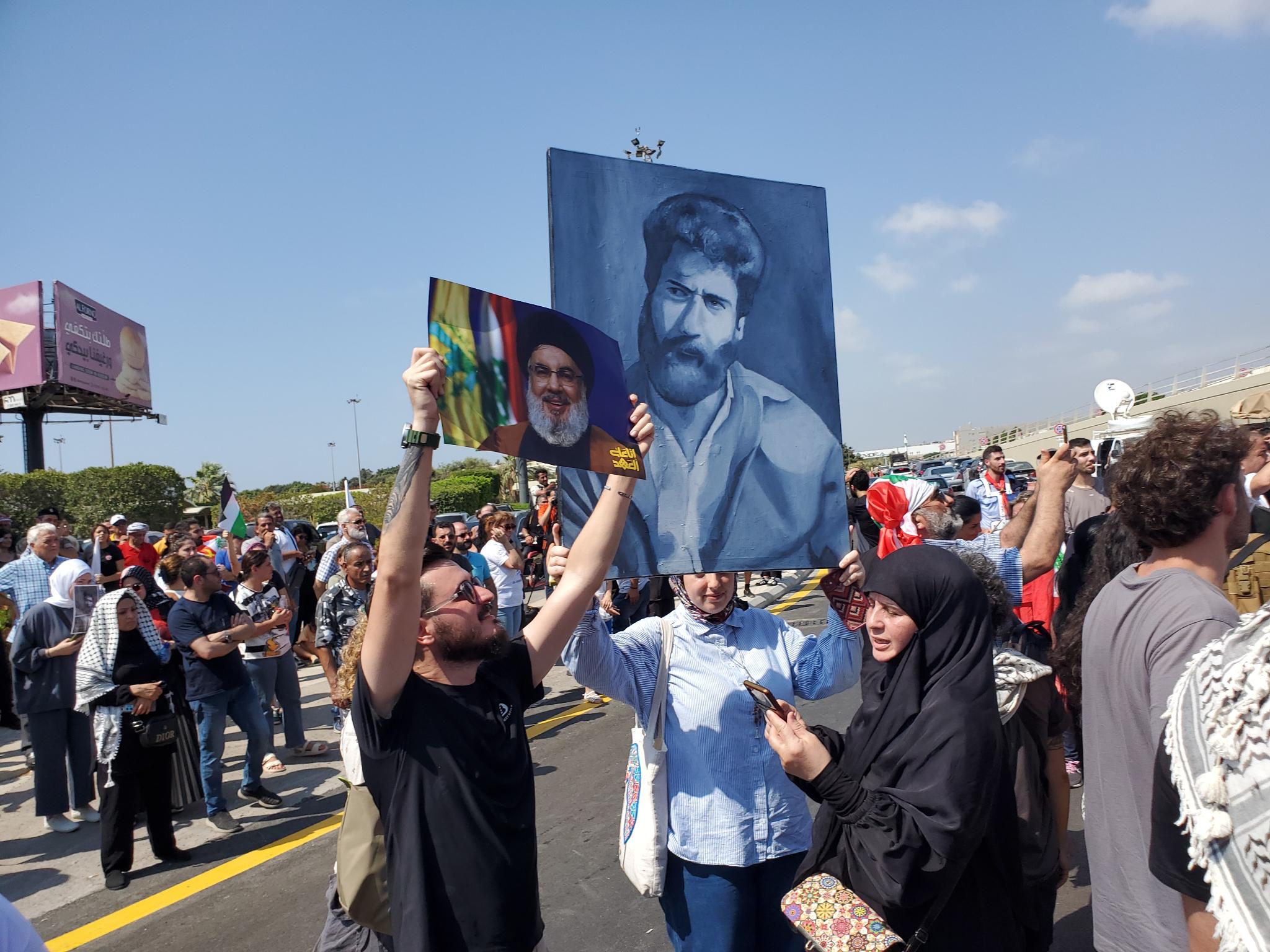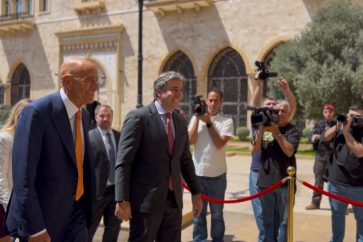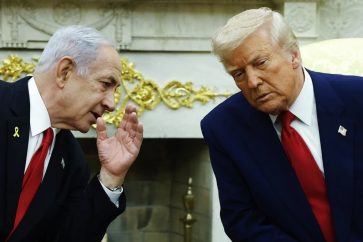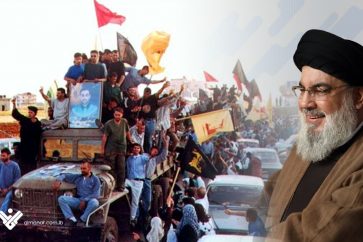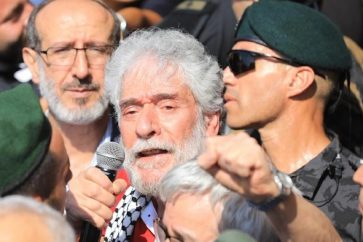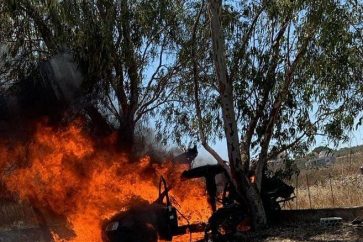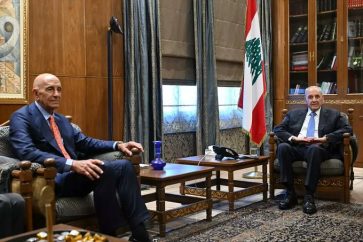On the morning of July 25, 2025, Beirut welcomed home one of its most steadfast sons. Georges Ibrahim Abdallah, a name long etched into the annals of revolutionary resistance, stepped foot on Lebanese soil for the first time in over four decades. Greeted by roaring crowds at Beirut International Airport and along the highway to his hometown of Qobayat, the 73-year-old former political prisoner was received not merely as a man returning from exile, but as a symbol of unbroken resistance and unwavering conviction.
The French plane carrying Georges Abdallah has landed in Beirut as crowds gather outside the airport to receive him. pic.twitter.com/p1m8OFNo7T
— The Cradle (@TheCradleMedia) July 25, 2025
Abdallah emerged from a French prison after 41 years of incarceration—most of which was served beyond his original sentence. In his first public address, delivered defiantly upon his return, Abdallah saluted the martyrs of the resistance and reaffirmed his belief in the justice of the cause he never abandoned. “My greetings to the resistance,” he declared to thousands gathered in solidarity. “To its martyrs, and its Dahiyeh.” With Gaza burning and regional powers paralyzed, Abdallah’s words were a sharp rebuke to Arab complacency and a reminder that resistance remains, in his eyes, both necessary and sacred.
“Resistance is freedom, and we must rally around it”. He affirmed to local TV channels while surrounded by throngs of his countrymen and women.
Georges Abdallah, liberated, a unitary figure of the resistance, who immediately saluted the mothers of al-Dahiyeh as the mothers of the martyrs lined the road to celebrate his release when he arrived, and called for escalation, resistance & action for Gaza. pic.twitter.com/jhjTafTpgK
— Samidoun Network (@SamidounPP) July 25, 2025
Now, after more than four decades behind bars, Georges Abdallah’s return does not mark the end of his political journey—it marks its renewal. In his eyes, the resistance lives, the struggle endures, and the martyrs speak louder than treaties or silence. For a generation witnessing a renewed era of confrontation—from Gaza to the refugee camps of Lebanon—his story is both an indictment and an invitation: to resist, to remember, and to remain unbroken.
Chained for Palestine
Born in 1951 in the northern Lebanese town of Qobayat, Georges Abdallah’s political journey began in the midst of Lebanon’s own civil strife and deepened through the Palestinian struggle against Israeli occupation. A committed Marxist and member of the Lebanese Armed Revolutionary Factions (LARF), he was arrested in Lyon in 1984 and later convicted for his alleged involvement in the assassinations of a U.S. military attaché and an Israeli diplomat in Paris—acts carried out in retaliation for the U.S.-Israeli role in Lebanon and Palestine.
Abdallah had previously fought alongside the Popular Front for the Liberation of Palestine (PFLP) and later helped form LARF—an underground faction rooted in anti-imperialist ideology and solidarity with the Palestinian cause. Operating across borders during a period when Israeli invasions and American interventions had turned Lebanon into a regional battlefield, Abdallah’s work focused on building alliances between Arab and European militant movements. His vision of resistance extended beyond national borders; he viewed the struggle against Zionism, Western imperialism, and global capitalism as interconnected fronts of the same battle.
Under his guidance, LARF was not simply a military outfit but an ideological project. The group’s communiqués—ghostwritten in safehouses scattered between Beirut and Paris—spoke of the need for a united international front against colonial domination. Abdallah believed armed resistance, when directed against military and intelligence targets of occupying powers, was a necessary response to decades of Western-backed aggression in the Arab world. It was this worldview that would eventually land him in a French courtroom and cement his fate as one of the longest-held political prisoners in Europe.

Though the charges against him were based on contested evidence and a deeply politicized trial, the real threat Abdallah posed—at least in the eyes of Washington and Tel Aviv—was ideological. He represented a militant, organized form of Arab dignity that refused to separate justice from resistance or occupation from consequence. His sentencing became a statement, not only about France’s alignment with U.S. and Israeli policy, but about how far Western states were willing to go to criminalize solidarity with Palestine.
Though Abdallah became eligible for release as early as 1999, successive French governments—under U.S. and Israeli pressure—blocked every legal attempt at freedom. Judges ruled for his release multiple times, but those rulings were overruled or left unimplemented by political authorities. He became not only a prisoner of the French state, but of a global political order that demanded his silence and feared the message his liberty would send.
That fear was palpable even in his final moments in France. Authorities released him a day ahead of schedule and barred him from issuing any public statements before his deportation. Yet despite every attempt to quiet his voice, Georges Abdallah returned home to the thunder of chants, the waving of Palestinian and Lebanese flags, and a sea of faces welcoming not just a man, but a struggle made flesh.
Speaking to Al-Mayadeen, Ibrahim al-Halabi, a longtime member of the international campaign for Abdallah’s release, called the day “a great victory for freedoms—not only for George and Lebanon, but for everyone who has fought for justice.” Indeed, Abdallah’s cause has galvanized global support in recent years, from trade unions in Europe to resistance groups across the Middle East. His continued imprisonment had become a glaring contradiction in France’s professed commitment to human rights and judicial independence.
Forty-One Years of Iron and Silence
Georges Abdallah entered the French prison system in 1984 as a defiant revolutionary and emerged in 2025 with the same convictions intact. But those forty-one years behind bars were not without cost. Locked away in Lannemezan prison in southern France—a facility known for housing high-security inmates—Abdallah spent decades in near-total isolation, denied parole repeatedly despite fulfilling all legal conditions for release as early as 1999. The prison authorities imposed strict communication restrictions, curtailed visits, and often censored his political writings. Yet through it all, Abdallah refused any compromise, rejecting every conditional release that required renouncing his principles or expressing remorse.
He read voraciously. He wrote letters to comrades around the world. And year after year, he signed his statements from “within the belly of the beast,” reaffirming his solidarity with Palestine and the broader struggle against imperialism. In one of his rare public writings, he described the prison not as a grave, but as a “frontline of struggle” where dignity was a daily act of resistance. That posture, however, came at the cost of aging far from home, enduring solitary winters, and missing the lives of loved ones as time took its toll.

Back in Qobayat, his family bore the quiet weight of his absence. Georges’ mother died while he was still imprisoned; his brothers and nieces grew up attending marches and vigils instead of homecomings and celebrations. Their visits to France were rare and tightly monitored. And yet, they stood firm—his family becoming, over time, an extension of the resistance he embodied. In Lebanon, his small mountain town turned into a symbol of international defiance. His portrait hung from balconies, and every anniversary of his arrest sparked renewed calls for justice.
Outside prison walls, an unrelenting campaign for his release grew stronger with each passing year. What began as a modest effort by a few Lebanese and Palestinian activists gradually transformed into a transnational movement of unions, human rights defenders, student groups, and former political prisoners. In France, protesters rallied annually outside Lannemezan. Banners reading “Libérez Georges Abdallah” became fixtures of leftist marches from Paris to Marseille. Across the Mediterranean, murals of Abdallah adorned refugee camps in Lebanon, Gaza, and Tunisia. While the French state sought to bury him in obscurity, the global protest movement resurrected him in image and idea—making him not just a prisoner, but a living symbol of resistance unbent by time or steel.
The Return of a Revolutionary
When Georges Abdallah emerged from the airport terminal in Beirut, the crowd surged forward not to greet a man, but to embrace an idea. For many, his return was the homecoming of a revolutionary who had long ceased to belong to any one town or border. Qobayat’s son had become, through four decades of principled captivity, the embodiment of steadfastness in the face of imperial power. The chants that echoed from the airport road to the northern mountains were not simply of joy—they were declarations of continuity. That resistance does not retire. That dignity is not negotiable. That Lebanon still births men who choose prison over submission, silence, or shame.

In his first public words on Lebanese soil, Abdallah spoke not of vengeance or despair, but of fidelity. “Resistance is freedom,” he proclaimed to the people gathered under the July sun. “And we must rally around it.” He saluted the martyrs of the resistance, bowed to Gaza’s steadfastness, and reminded a region still shackled by fear and fragmentation that its future will not be written by normalization, but by struggle. At a time when Arab regimes race to court Tel Aviv and Western capitals escalate their war on the very notion of armed defiance, Abdallah’s words landed like a challenge to the prevailing order.
His return coincides with a renewed political assault on Lebanon’s resistance movements. International pressure mounts against Hezbollah and its weapons, while local elites echo calls for disarmament under the pretense of sovereignty. But sovereignty, Abdallah’s life reminds us, is not measured by rhetorical appeals to statehood—it is measured by the people’s right to defend themselves against occupation, aggression, and domination. For Abdallah, the rifle of the resistance was never an aberration of law, but an assertion of justice. The prison bars that confined him were not stronger than the principle they tried to contain.
In an age where resistance is slandered as terror, and loyalty is traded for favor in foreign halls of power, Georges Abdallah returned not only as a free man—but as a reminder that freedom begins where subjugation ends. His legacy is not merely behind him; it marches now beside him, on the shoulders of a generation still defying siege in Gaza, drones in Beirut, and sanctions in Damascus. His walk through the airport was not a retreat into old history—it was the entry of a revolutionary back into the world he never truly left.
Source: Al-Manar Website

